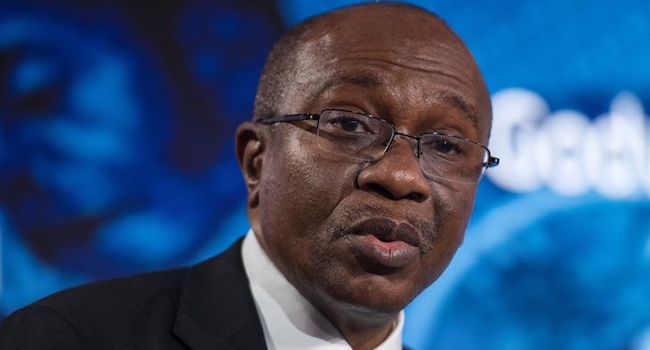Business
REVIEW: Nigerians may lose jobs, revenue to CBN’s 18% MPR

On Tuesday, the Central Bank of Nigeria (CBN) raised the Monetary Policy Rate to 18 per cent, up from 17.5 per cent, a decision that surprised many.
Since April 2022, the central bank has been raising the MPR, which serves as a benchmark for lending rates. Moving it upward from 11.50 per cent to the current level of 18 per cent.
The CBN’s Monetary Policy Committee (MPC), which is tasked with setting the rate, is waging a war against inflation which stands at 21.91 per cent, against 17.35 per cent when the CBN started tightening the monetary environment.
Despite inflation resisting the continuous hikes in MPR, the MPC on Tuesday doubled down, with CBN Governor, Godwin Emefiele, stating that relaxing the interest rate would erode the gains he believes the apex bank has achieved – despite no signs of CBN reining in inflation.
“The MPC noted that while the continued rise in headline inflation remains a significant problem confronting the economy, other macroeconomics were moving in the right direction despite observed headwinds.
“The committee’s debate at this meeting, therefore, was whether to continue its rate hike to further dampen the rising inflation trajectory or hold to observe emerging development and allow for the impact of the last five rate hikes to permeate the economy. Loosening in the view of the members (MPC) will gravely undermine the gains so far achieved,” Emefiele had stated.
The decision comes at a period analysts globally are expecting central banks to slow down their hike of MPR, used against inflationary pressures, in the face of a financial crisis rearing its head after two banks in the United States, Silicon Valley Bank and Signature Bank went bankrupt due to continuous hikes in MPR.
Following the collapse of Silicon Valley Bank and Signature Bank, there have been fears of contagion across the global financial industry, leading to the belief that central banks will hit a brake on hiking lending rate, but the central bank in Nigeria said further hikes would not lead to the collapse of Nigerian banks.
Emefiele also argued that: “MPC examined the possible impact of further policy rate hikes on the stability of the banking system and was convinced that further rate hikes would not adversely impact the stability of the banking system.
“The committee, however, called on the bank’s management to strengthen its regulatory oversight on the banking system, to ensure that the banking industry remains stable and resilient.”
READ ALSO:REVIEW: Another flood disaster looms, as states fail to act months after Lagdo Dam crisis
However, while the CBN believes the 50 points hike won’t affect the stability of banks, Ripples Nigeria understands that it will impact Nigerians negatively.
The hike in MPR will cause credit costs to rise, as banks will lend at 18 per cent and above interest to new borrowers. Also, existing debtors will see the interest on their debt raise in line with the new rate.
Consequently, the cost of credit will be passed down to Nigerians or consumers through hikes in the prices of goods and services.
As a result, the cost of living will rise and purchasing power of households will drop, affecting the sales of companies, as customers are unable to afford their goods or services.
In response, companies will be forced to reduce production or sack some workers to save costs or earnings, part of which is lost to the interest rate. This will lead to firms paying less tax, and as a result, reduce contribution to the economy or gross domestic product (GDP).
Business Analyst, Kelvin Emmanuel, who is also the Chief Executive Officer of Dairy Hills, said: “MPR at 18% means the cost of capital in the debt capital markets will keep rising & the end consumers will bear the rising cost of production, which on its own, is a contributor to demand pull inflation.”
Emmanuel also stated that: “One of the lessons from SVB should be how rising interest rates by FOMC contributed to blow up of mortgage backed & treasuries held.
“The monetary policy Committee needs to assess the impact of aligning interest to inflation yield curve might actually contribute to non-performing loan book (when looked at on a weighted average basis) can actually rise from the current 4.8% above the 5.6% recommended by FSS,” he wrote on Twitter.
Also addressing the CBN’s hike in MPR, Economist, Kalu Aja opined: “When banks borrow and lend, they benchmark based on the MPR. Thus, if the CBN sets MPR at 18%, all commercial banks will lend 18% PLUS.”
“CBN wants banks to lend and not place funds with CBN,” Aja stated, adding separately, “Look at the MPR is the rate banks can borrow from the CBN. Thus if MPR is raised, banks will also raise their bank loan rates. Overall, bad for the economy, it kills jobs.”
Join the conversation
Support Ripples Nigeria, hold up solutions journalism
Balanced, fearless journalism driven by data comes at huge financial costs.
As a media platform, we hold leadership accountable and will not trade the right to press freedom and free speech for a piece of cake.
If you like what we do, and are ready to uphold solutions journalism, kindly donate to the Ripples Nigeria cause.
Your support would help to ensure that citizens and institutions continue to have free access to credible and reliable information for societal development.






















